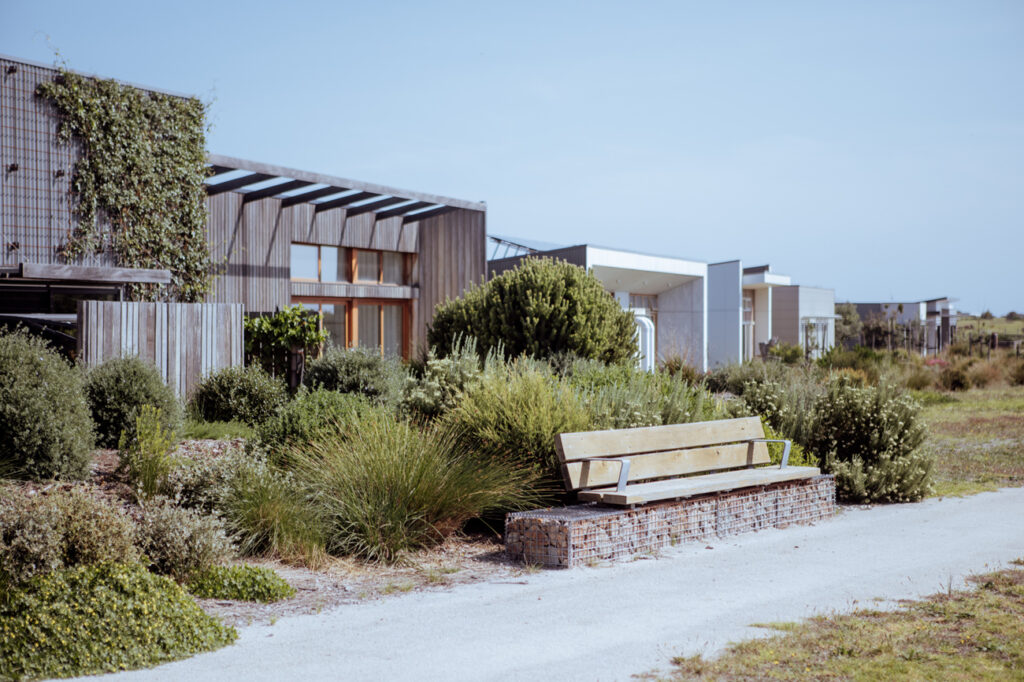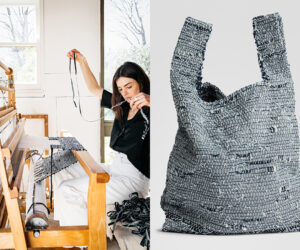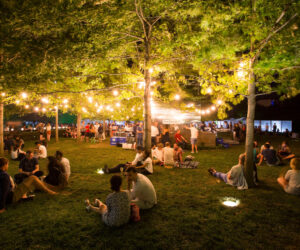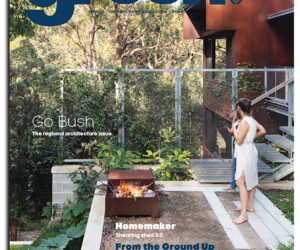The Cape sustainable estate rises to COVID-19 challenges
As households, communities and the real estate industry navigate difficult times with current COVID-19 restrictions in place, The Cape sustainable estate in Victoria’s Bass Coast has a number of “liveability and resilience” features that are proving very effective in the present environment, and provide a roadmap for the broader housing industry to adapt to future climate change challenges.
The estate has implemented a range of leading initiatives including eight-star energy efficient, bill-busting solar powered homes that are naturally comfortable year-round with NBN connection, urban farming, electric vehicle charging and much more. As a result, The Cape is performing very well across economic, environmental and social benchmarks at a time of restricted movement, income and social interaction and many of these elements are easily able to be adopted by the broader development industry.
Recently, many Australians have found themselves isolating at home during COVID-19, in older housing stocks that generally rate between one- and three-stars; that can be stiflingly hot in summer and freezing cold in winter; or newer houses in modern estates that are unnecessarily energy intensive with annual running costs of thousands of dollars.
To show the way forward for housing estates, The Cape has implemented a number of leading energy efficiency initiatives in all houses that level increase comfort levels while dramatically reducing energy costs. All homes at the Cape are averaging over eight-star energy efficiency – a national first – through a combination of good orientation, excellent insulation, double glazing, strategic shading, thermal mass. Added to this, all homes have solar power, feature an efficient all electric fitout, and have replaced expensive gas with heat pump heating, cooling and hot water systems and induction cooktops. The result is homes that are effortlessly warm in winter and cool in summer. Homes are experiencing energy bills of $500 and less per annum (less than 20 per cent of the state average), with many homes selling surplus power to the grid and effectively zeroing their energy bills altogether.
Drought and climate change have been driving up food costs in Australia. At, the same time COVID-19 restrictions have seen a surge in interest in home food growing. The Cape estate has made provisions for residents to grow large volumes of fresh produce by building stage one of a large community farm – and introducing households to highly innovative, water efficient, modular home farms designed by Melbourne urban farming company, Biofilta.
The Cape’s walking paths, parks and coast provide the ideal opportunity for some time out and a walk to stretch the legs, take in some fresh air and have a break from the home office. The energy efficient homes also ensure that energy bills won’t spike if residents are working from home. Many homes are designed with an NBN connected home office, making a choice of a home at the Cape the ideal sea-change/e-change opportunity and providing residents with the ability to live by the coast while being productive and connected to the broader world and businesses.
Socially positive, active urban design at the Cape allows for residents to build and maintain a strong connection with their community through passive design features of their homes and landscapes, while balancing the need for privacy. The Cape has incorporated many examples of socially positive design including open streets and neighbourhoods with no front fencing, traffic calmed streets and kilometres of granitic sand walking and cycling path networks that take in smaller pocket parks and larger parks, wetlands, coastal views and restored habitat areas.



